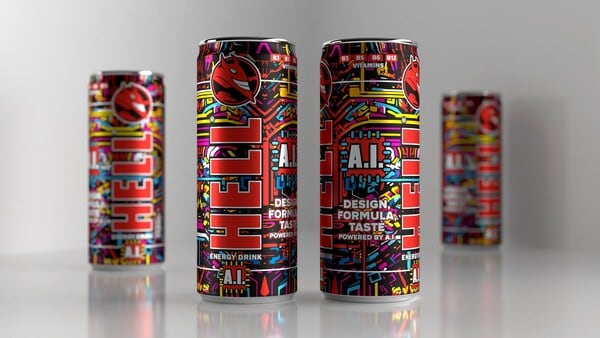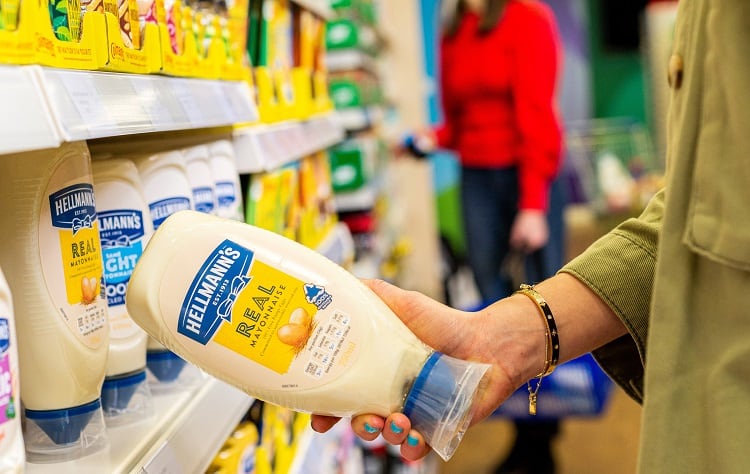The metaverse is a virtual world where users share experiences and interact in real-time within simulated scenarios. The metaverse market is anticipated to grow by a compound annual growth rate (CAGR) of over 33% between now and 2030, data analytics and consulting company Global Data revealed in an August 2023 report. By 2030, the metaverse market is expected to value at $627 billion.
Bringing together a range of next-generation technologies, including cloud computing, artificial intelligence (AI), blockchain, cryptocurrencies, augmented reality (AR) and virtual reality (VR), big name foodservice operators are embracing the metaverse to appeal to consumers.
Analysing the food metaverse
“The metaverse is an emerging mega-theme involving companies from various industries, including food service,” Rupantar Guha, Project Manager of Global Data, told FoodNavigator. “It is still largely conceptual but could transform how people work, shop, communicate, and consume content,” Guha said.
However, Global Data data shows that metaverse hype is waning among food brands. In 2022, metaverse-related social media posts in the food service sector fell by 21% compared to 2021. “We are currently in a metaverse winter, and its adoption in the food service sector will be delayed,” Martina Raveni, Associate Analyst at Global Data, told FoodNavigator.
Nonetheless, those in the sector recognise that the metaverse has applications in many aspects of the food industry, mainly in customer engagement and retention, digital marketing and advertising strategies, supply chain management, and transparency–presenting opportunities for producers.
Consumer reactions to current applications
Consumers have played in Wendy’s Wendyverse, purchased Starbucks non-fungible tokens (NFTs) in Starbucks Odyssey to earn reward benefits, and around 300 people applied for the wedding ceremony in Decentraland hosted by Taco Bell, Global Data revealed.
“However, these are experimental initiatives launched by food service brands to keep up with the trend,” said Guha. The hard evidence of consumer adoption or engagement will likely emerge over the next three years when and if the metaverse-enabling technologies mature, Global Data anticipates.
“There is no evidence yet of real-time returns for brands in the metaverse, but they are investing in virtual worlds, avatars, and NFTs in the hope of generating returns in the long run,” Guha added.
Physical and digital presence
Food brands’ attention may now rest on how they can straddle their presence in the physical and digital landscapes to appeal to consumers in the coming months and years. “We will probably see a mix of both,” Raveni said. For food service brands, the hybrid approach appears to be a natural fit, providing a potential gateway for other food brands from the industry to explore opportunities in the sphere.
“Food companies, by nature, cannot live entirely online, but they must have an online presence to attract and maintain customers, advertise, and reach new audiences,” added Raveni. Reward benefits, loyalty schemes, or gamification within the metaverse can enable this.
“Moreover, home delivery services and consumer engagement through digital channels, such as social media and companies’ apps, have become essential for businesses trying to stay afloat,” Raveni continued.
Launching the latest marketing tool
Current hurdles impact the metaverses’ potential among food industry players. “The adverse macroeconomic circumstances mitigate against the metaverse success in every sector, including food service,” said Raveni. Contributing factors to the current metaverse winter include cooling interest and instabilities in the global economy.
“The immaturity of enabling technologies and loosely defined use cases are critical hurdles facing food service companies trying to monetise the metaverse,” Raveni stated.
However, opportunities to excel drive growth for the food industry. “Several fast-food chains have proven the power of this technology, entering the market with skilful advertising and customer engagement strategies,” said Raveni. McDonald’s, Pizza Hut and Papa John’s are among the big-name brands making their metaverse move.
Effective strategies involve gamification, whose rewards can be redeemed for real restaurant food. Examples include the Chipotle Burrito Builder or the Wendyverse. With the Chipotle Burrito Builder, players challenge themselves to roll burritos in the metaverse to earn Burrito Bucks and eventually exchange them for real-world items through the brand’s app or website. Wendy’s has devised a virtual restaurant in Wendyverse Town Square Central where players can meet people or chat over the counter.
“These are examples of how food brands use the metaverse to foster relationships with users in virtual environments, advertise, and capitalise on it when consumers spend their earned promotions at physical outlets,” Raveni details. “The metaverse is a new digital battleground in the making,” Guha added.




